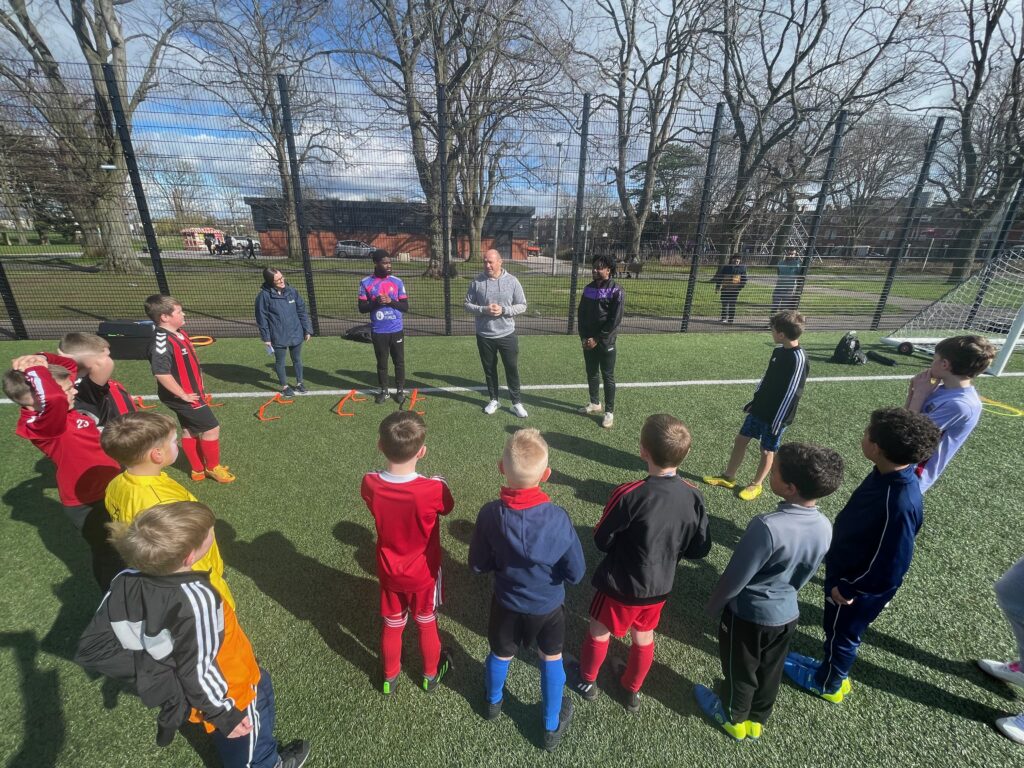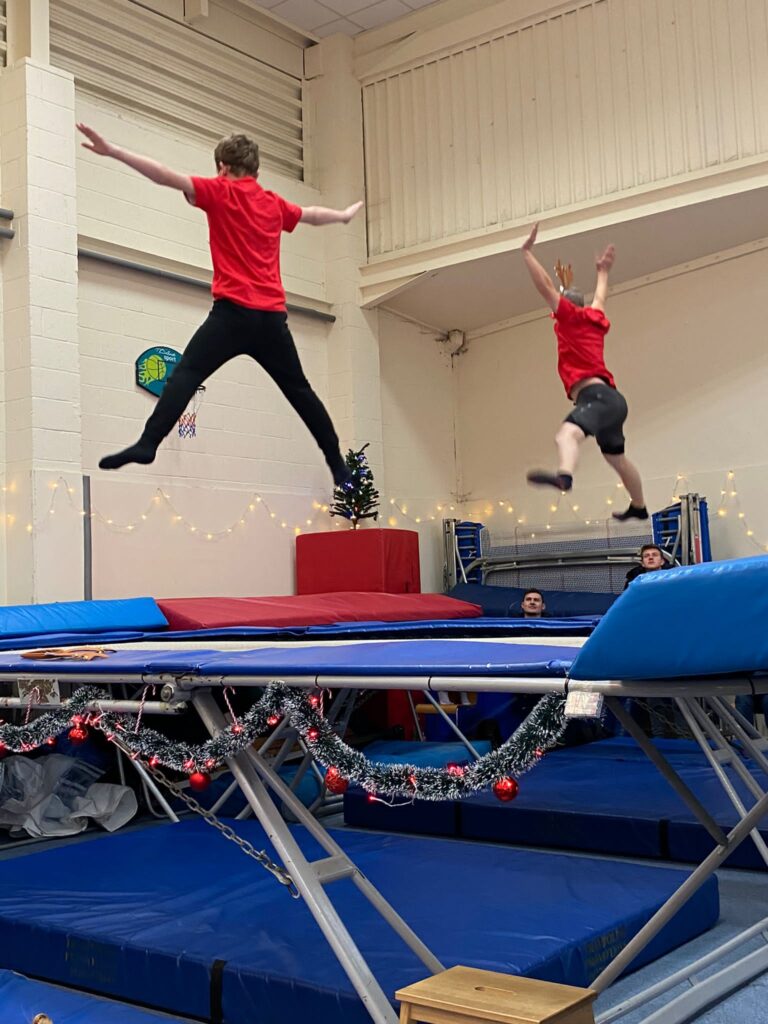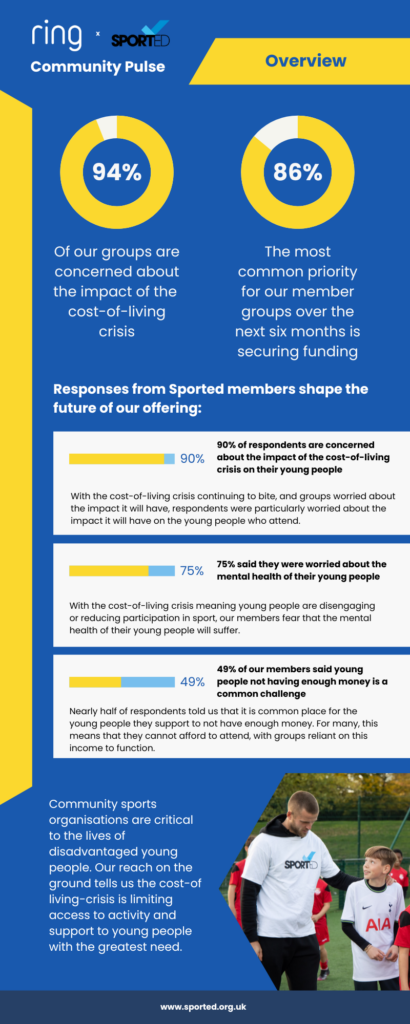Cost of living pressures, including elevated energy, facility and insurance costs, are putting the future of many grassroots sports clubs at risk – and threatening to freeze young people out of participation, research from home security company Ring and Sported has uncovered.
The Community Pulse survey from among Sported’s network of almost 3,000 community-based groups across the UK found that over nine in ten were “extremely or fairly concerned” about the impact of increased costs on their operations.
49 per cent say they have been hit by a significant rise in energy bills over the past six months, 48% are coping with increases in other utility bills, and 41% with a reduction in financial support.
With 51% of the clubs and organisations responding operating in the 30% most deprived areas of the country – and most run and operated by volunteers – the current challenges in play threaten the infrastructure that gives young people an opportunity to be active and to address many of society’s pressing issues such as mental health and crime prevention.


Sported, which offers free resources and funding to groups in its network, identified from group leaders that 75% of them are concerned that cost of living increases are impacting on the mental health of the young people they work with.
73% see that the economic pressures are causing disengagement or reduced participation in sport and physical activity. And 71% are already witnessing negative consequences for the general wellbeing of their participants.
In the longer term, one in three of those surveyed by Sported believe cost of living hits will lead to drops in young people being active, with 24% seeing consequences of families and kids not having enough money and facing financial hardship.
Karen Bunyan, who operates Ricochet Trampolining club in Oxfordshire, said: “We’re seeing the pinch among the people who come in. We’re in a deprived area. One of our goals is to be a gateway for British Gymnastics to develop talent.
“But that squad has gone from 12 to four. Two parents got made redundant. Another went to work abroad. One other can’t get here any more. And that’s just one of the impacts.
“Kids in our area can get into strife. They might become disruptive at school or get involved with petty crime. But when they come here, we get them active, we train them in first aid, they socialise, they become part of a community.
“They gain skills for their CVs and respect for others. The physical health/mental health knock on when they don’t come is massive.”


Tom Burstow, deputy CEO of Sported, said: “It costs a huge amount to run a grassroots sports club. And there are various challenges. 85% of our groups don’t own their own facility.
“So you have the 15% who have enormous facility costs and energy prices sky rocketing. And then the remainder are reliant on the costs set for them and those have risen exponentially as well.
“During Covid, there were a lot of emergency funds and those groups managed to survive. That same level of funding isn’t there now. But many groups are having to manage increased costs on less money.
“We want every young person to have a chance to realise their potential. The groups are at the heart of their communities and we fear that if they are lost, young people will be more susceptible to risk.”
Uma O’Neill, who runs WISP Dance club in Flintshire, said: “There’s been an obvious financial impact on families. We keep sessions as cheap as we can make them at £7 a time. We still see some people just stopped coming when the grants we had were removed. But there’s others who are determined to pay because they want to provide this for their children. It’s a balancing act for them.
“We had one person who is non-verbal but who loved coming to the group because she makes friends and that’s incredible. She might not engage but she’s ready when it’s her turn. She loves the sessions. And she’ll probably be missing that activity and that camaraderie with friends. We provide that socialisation and it makes such a difference.
“A lot of our reach is into an area of deprivation. I have put in funding bids to run schemes but there’s nothing coming back at the moment. It was a slow start after Covid and our financial situation is still tough.
“It’s not good. But we’ll keep delivering.”
Download the May 2023 edition of the Sported / Ring Community Pulse here.
